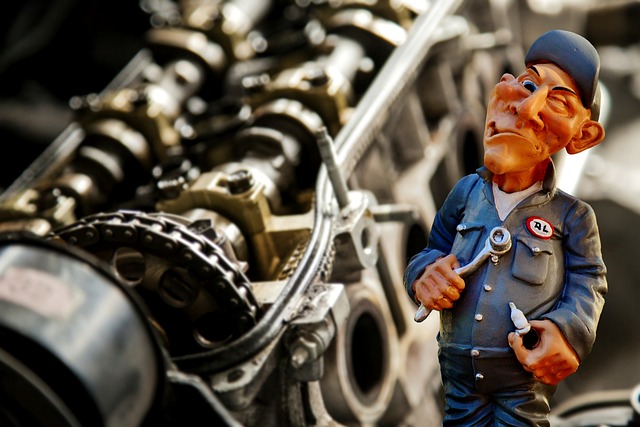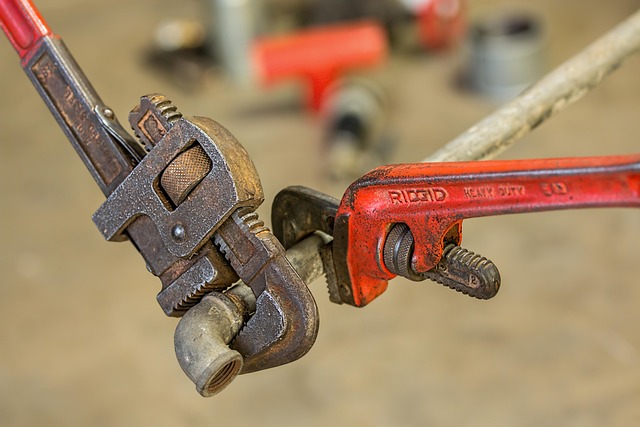Revolutionizing Auto Repairs: The Unseen Impact of Truck Collision Services
Truck collision services specialize in complex auto repairs for commercial vehicles post-accident. T…….
In the vast and intricate network of global transportation, truck collision services stand as a critical component in ensuring road safety, minimizing disruptions, and facilitating efficient recovery processes. These specialized services are designed to address the unique challenges posed by commercial vehicle accidents, offering a range of solutions from emergency response to comprehensive damage repair and logistical support. As the world becomes increasingly reliant on road freight for economic growth, understanding and optimizing truck collision services is paramount to maintaining the stability and safety of our highways. This article aims to provide an in-depth exploration of this vital sector, shedding light on its operations, impact, and future potential.
Definition: Truck collision services encompass a comprehensive set of activities aimed at managing and mitigating the consequences of accidents involving large trucks (e.g., semi-trucks, 18-wheelers). These services include emergency medical assistance, vehicle recovery, roadside repair, and logistics coordination to facilitate the efficient clearance of accidents and restore normal traffic flow.
Core Components:
Emergency Response: Rapid deployment of trained personnel, including paramedics and tow truck operators, to the accident scene for immediate care and stabilization.
Vehicle Recovery and Towing: Expert handling of damaged trucks, including specialized towing techniques and equipment, to ensure safe removal from the road.
Accident Scene Management: Containing and securing the accident zone, providing traffic control, and facilitating investigations to determine liability.
Damage Assessment and Repair: Comprehensive inspection and repair services for both truck and trailer components, often involving specialized mechanics and body shops.
Logistics and Coordination: Efficient planning and execution of alternative transportation, cargo rerouting, and insurance claims processing to minimize disruption to businesses and shippers.
Historical Context: The concept of dedicated truck collision services has evolved significantly over the past century. Early responses to road accidents were largely ad-hoc, relying on local law enforcement and emergency medical services. However, with the proliferation of large trucks in the 1950s and 1960s, the need for specialized training and equipment became apparent. By the late 20th century, many countries had established dedicated truck collision response teams, leading to improved accident management and reduced congestion at crash sites.
Significance: These services play a crucial role in several aspects:
Road Safety: Efficient incident management reduces secondary accidents caused by congestion and improves overall road safety.
Economic Impact: Quick resolution of accidents minimizes delays for freight transport, preserving the integrity of supply chains and reducing economic losses.
Environmental Considerations: Effective accident response prevents fuel spills and minimizes environmental damage, especially in rural areas.
The influence of truck collision services extends far beyond national borders, as global trade and transportation networks continue to intertwine.
International Reach:
In North America, the United States has a well-established network of collision services, with companies like Truckers Assist and Roadside Assistance Group offering comprehensive coverage across the continent.
Europe boasts advanced systems, such as the German Autobahn’s rapid response teams, while the UK’s Transport for London coordinates specialized services for its dense urban networks.
Asia-Pacific regions, including Japan and South Korea, have implemented innovative technologies like real-time tracking and smart towing to enhance collision service efficiency.
Regional Trends:
| Region | Notable Trends |
|---|---|
| North America | Increasing adoption of telematics for predictive maintenance and accident forecasting. |
| Europe | Growing emphasis on green technologies, including eco-friendly towing equipment and low-emission repair facilities. |
| Asia-Pacific | Rapid digital transformation with online claim processing and mobile apps for real-time collision service requests. |
| Middle East & Africa | Expansion of collision services in emerging economies due to increasing truck volumes and complex logistics networks. |
The economic landscape surrounding truck collision services is multifaceted, influenced by various factors that shape the industry’s growth and profitability.
Market Dynamics:
Service Coverage: The extent of collision service coverage (geographic and fleet size) directly impacts market share and revenue potential. National and regional providers often dominate, but specialized local services cater to niche needs.
Fuel Costs and Logistics: Fluctuations in fuel prices significantly affect operational costs, especially for towing and long-distance recovery. Efficient logistics planning is crucial for maintaining profitability.
Regulatory Compliance: Adherence to safety standards and regulations can drive up costs but also enhances service quality and customer trust.
Investment Patterns: The industry attracts investments from both private equity firms and transportation companies looking to enhance their fleet safety and operational resilience. Recent trends include:
Technology Upgrades: Funding for advanced tracking systems, telematics, and data analytics to optimize collision response times.
Infrastructure Development: Investments in specialized repair facilities and training centers to improve service quality.
Mergers and Acquisitions: Strategic consolidations to create larger, more efficient providers capable of handling complex logistics challenges.
Economic Impact: Effective truck collision services contribute to:
Reduced Transportation Costs: Minimizing delays and damage costs for shippers and carriers.
Enhanced Supply Chain Reliability: Ensuring the timely movement of goods, especially in industries with just-in-time inventory models.
Job Creation: Supporting a network of skilled professionals, from collision technicians to emergency responders and logistics coordinators.
Technology has revolutionized truck collision services, improving efficiency, safety, and customer satisfaction.
Telematics and Data Analytics:
Real-time Tracking: GPS and IoT devices enable constant monitoring of vehicle locations, enabling rapid response to accidents.
Predictive Maintenance: Telematics data helps identify potential mechanical issues before they cause breakdowns or accidents.
Accident Forecasting: Advanced analytics predict high-risk areas and collision patterns, allowing for proactive safety measures.
Smart Towing and Repair:
GPS-Enabled Towing: Real-time tracking of towing vehicles ensures efficient routing and reduces wait times at accident sites.
Autonomous Recovery Vehicles: Conceptual designs explore self-driving tow trucks for safer, more efficient recovery operations.
Mobile Repair Units: Equipped with diagnostic tools and basic repair capabilities, these units can provide immediate roadside assistance.
Digital Customer Engagement:
Mobile Apps: Customers can now report accidents, request services, and track progress through user-friendly apps.
Online Claim Processing: Digital platforms streamline insurance claims, reducing paperwork and turnaround times.
Virtual Support: AI chatbots provide 24/7 assistance, answering common queries and guiding users through the service process.
Government policies and regulations play a pivotal role in governing truck collision services, ensuring safety standards, consumer protection, and fair competition.
Safety Standards:
Vehicle Inspection Programs: Regular checks of commercial vehicles ensure compliance with safety regulations, minimizing hazardous conditions on the road.
Emergency Response Protocols: Standardized procedures for collision response teams ensure efficient and coordinated management of accident sites.
Training Requirements: Rigorous training programs equip personnel with the skills needed to handle complex accidents and provide medical aid.
Consumer Protection:
Insurance Regulations: Policies mandating commercial vehicle insurance protect both businesses and consumers, ensuring financial accountability in case of accidents.
Dispute Resolution Mechanisms: Clear legal frameworks facilitate the peaceful resolution of disputes between service providers, insurers, and customers.
Competition and Licensing:
Licensing Requirements: Governments grant licenses to collision service providers based on criteria such as equipment, training, and financial stability.
Anti-Monopoly Laws: These ensure fair competition and prevent the dominance of any single provider, fostering a robust market.
Pricing Regulations: Some jurisdictions monitor pricing structures to prevent excessive charges for essential services.
Despite its critical role, the truck collision services industry faces several challenges that hinder its ability to provide optimal support.
Main Challenges:
Rapidly Changing Technology: Keeping up with technological advancements requires significant investment in training and equipment upgrades, posing a challenge for smaller providers.
Workforce Shortages: Skilled personnel, from mechanics to emergency responders, are in high demand, leading to staffing shortages in some regions.
Complex Regulatory Environment: Navigating varying local regulations can be burdensome for national collision service providers, increasing operational complexity.
Environmental Concerns: Balancing the need for efficient recovery operations with environmental sustainability, especially regarding fuel consumption and waste management.
Proposed Solutions:
Public-Private Partnerships: Collaboration between governments and private providers can leverage resources and expertise, enhancing service availability and quality.
Industry Training Programs: Developing comprehensive training initiatives to address workforce shortages and ensure a skilled pool of collision service professionals.
Digital Standardization: Creating standardized digital platforms for service requests, claims processing, and communication to simplify interactions between customers, providers, and insurers.
Sustainable Practices: Implementing eco-friendly technologies and operational methods to reduce the environmental footprint of collision services.
Real-world applications of truck collision services offer valuable insights into successful strategies and innovative solutions.
Case Study 1: Germany’s Autobahn Emergency Response
The German Autobahn, known for its high-speed driving, has a unique system where rapid response teams are strategically positioned along the highway. These teams provide immediate medical aid and coordinate efficient towing and repair services. The key lessons:
Preemptive Approach: Proactive presence on highways ensures swift response times, minimizing secondary accidents and congestion.
Multidisciplinary Teams: Emergency medical technicians, tow truck operators, and mechanics work in tandem, demonstrating the value of specialized collaboration.
Case Study 2: Japan’s Digital Collision Response System
Japan has implemented a digital collision response system that leverages AI and machine learning to predict accident hotspots and optimize resource allocation. This system:
Data-Driven Decisions: Real-time data analysis predicts accident patterns, allowing for targeted deployment of resources.
Reduced Response Times: Advanced algorithms ensure efficient routing of towing vehicles and emergency services.
Case Study 3: US Truckers Assist Program
Truckers Assist is a US-based non-profit providing collision assistance to truckers nationwide. Their success lies in:
Community Support: Leveraging the power of community networks to offer peer support and coordination during emergencies.
Comprehensive Services: Providing not just roadside assistance but also legal aid, insurance advocacy, and mental health resources to truck drivers.
The future of truck collision services is poised for significant growth and transformation, driven by technological advancements and evolving industry dynamics.
Potential Growth Areas:
Autonomous Vehicles: As autonomous trucks gain traction, collision services will adapt to address unique challenges, including the integration of advanced driver assistance systems (ADAS) data into accident investigations.
Electric Vehicle (EV) Recovery: The rise of EVs requires specialized recovery equipment and training to handle these new vehicle types safely.
Global Consolidation: Market consolidation is expected as larger providers expand internationally, creating a more unified global collision services network.
Emerging Trends:
AI-Driven Analytics: Artificial intelligence will revolutionize data analysis, enabling more precise accident forecasting and efficient resource allocation.
Blockchain for Claims Processing: Blockchain technology offers secure, transparent, and streamlined insurance claims processing, reducing fraud and speeding up payouts.
Green Collision Services: Increasing focus on sustainability with eco-friendly recovery vehicles, fuel-efficient operations, and waste management practices.
Strategic Considerations:
Digital Transformation: Investing in digital infrastructure and training to enhance service efficiency and customer experience.
Sustainable Business Models: Adopting green practices not only attracts environmentally conscious customers but also reduces operational costs.
Data Collaboration: Sharing data across providers and industries can improve accident forecasting, resource planning, and overall safety.
Truck collision services stand as a cornerstone of road safety and logistical efficiency, playing a vital role in managing the complexities of modern transportation. From global networks to local initiatives, these services have evolved to meet the demands of an ever-changing industry. By embracing technological advancements, fostering regulatory cooperation, and addressing challenges head-on, the collision service sector can continue to enhance its impact and contribute to safer, more resilient highways worldwide.
As we look ahead, the future of truck collision services promises increased automation, enhanced data-driven decision-making, and a greater emphasis on sustainability. By staying at the forefront of these developments, industry leaders can ensure that their services remain indispensable, safeguarding both the smooth flow of goods and the safety of all road users.
Q: How do truck collision services contribute to overall traffic safety?
A: These services play a crucial role in traffic safety by minimizing disruptions caused by accidents, reducing secondary collisions, and ensuring efficient clearance of congestion. Quick response and effective management help maintain road safety and fluidity.
Q: What are the primary challenges faced by collision service providers?
A: Common challenges include keeping up with technological advancements, workforce shortages, navigating complex regulations, and balancing environmental sustainability with operational efficiency.
Q: How can technology improve truck collision services?
A: Technology enhances services through real-time tracking for efficient response, predictive maintenance to prevent breakdowns, advanced data analytics for accident forecasting, and digital customer engagement for streamlined claims processing.
Q: Are there any global standards for truck collision services?
A: While there are no universal standards, many countries have established safety regulations and protocols that guide collision service operations. International collaborations strive for harmonization to facilitate cross-border services.
Q: What is the role of insurance in truck collision services?
A: Insurance plays a critical role by providing financial protection for truckers and shippers during accidents. It also facilitates claims processing, ensuring that collision service providers are compensated for their work.

Truck collision services specialize in complex auto repairs for commercial vehicles post-accident. T…….

Truck collision services are specialized workshops offering advanced, precise repairs for large comm…….

This text explores critical indexing rules for accurately categorizing truck collision services. It…….

Truck collision services provide comprehensive solutions for restoring trucks after accidents, encom…….

Truck collision services, a specialized sector within automotive repair, cater to the unique needs o…….

Understanding truck collision services is vital for drivers involved in trucking accidents. These sp…….

Truck collision services revolutionize automotive body shop operations by implementing advanced tech…….

Truck collisions pose significant risks, causing property damage, injuries, fatalities, and environm…….

Truck collision services play a critical role in ensuring road safety by providing swift and special…….